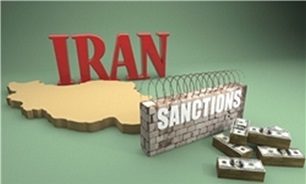New US Sanctions Go Well Beyond the Boundaries of International Law
 Some Democrats and the former Obama administration officials
have warned that the new actions could jeopardize the landmark nuclear deal
struck with Tehran. The committee’s Republican chairman, Sen. Bob Corker of
Tennessee, however, claims that the new sanctions would have no impact on the
nuclear deal, which he opposed.
Some Democrats and the former Obama administration officials
have warned that the new actions could jeopardize the landmark nuclear deal
struck with Tehran. The committee’s Republican chairman, Sen. Bob Corker of
Tennessee, however, claims that the new sanctions would have no impact on the
nuclear deal, which he opposed.
The bipartisan bill, which now has 48 Senate co-sponsors, imposes mandatory sanctions on people involved with Iran’s ballistic missile program and those who do business with them. It also applies alleged terrorism sanctions to the Islamic Revolutionary Guard Corps and enforces an arms embargo. Few points are worth mentioning in this regard:
1- As maintained by Former Secretary of State John Kerry, after Rouhani’s reelection, there is much up in the air/room for misinterpretation. This is not the moment for a new Iran bill. We need to consider the implications of confrontation without conversation.” That said, Iran has every right to defend itself and for this it will never ask for permission from the outside world.
2- European think tanks, lawmakers, traders and government officials admit that sanctions are not the best way to deal with Iran’s missile defense program. They equally admit that the economic warfare has been ineffective, unnecessary and counter-productive - a costly farce right from the beginning. Sanctions are not a one-way policy - they affect businesses in the US and Europe too. The problem with sanctions is that they lead to lost output and in some cases bankruptcy of the foreign - including European - firms involved.
3- The oppressive tactics have to some extent altered the modus operandi of military and defense in Iran. But that’s all really. They have failed to slow down Iran’s missile production or disrupt its military defense doctrine. They couldn’t stop it - a fact that the West can no longer afford to deny, particularly in places like Iraq, Syria, Lebanon and Yemen.
4- The sanctions regime was and still is short of scientific, technical, legal or justified virtues, and only designed to appease Israel and Saudi Arabia which just recently signed a deal to purchase US arms worth hundreds of billions of dollars. The sanctions regime is directed at Iran as a rising sovereign nation, a movement and an identity guided by principles against the hegemonic system.
5- The oppressive tactics have generated and will continue to generate a great deal of resentment on the world stage. Given the rotting security situation in Europe and America, it is still in the best interests of all concerned to continue converging on a diplomatic solution and working with Iran in regional security affairs. It is the only viable option left, and indeed the only high aim that’s worthwhile.
6- The new sanctions violate the nuclear deal between Iran and the West, as acknowledged by Kerry. It seems that President Trump intends to call off the deal (as he promised during his campaign), but he intends to force Iran to violate it first to escape the costs of defying an epoch-making international treaty. Tehran, on the other hand, has met its various obligations in ensuring regional peace and security, and it is war-party Washington that has a lot of work to do. They must stop weaponizing Iran’s neighbors and their own terror proxy forces in Iraq, Syria and Yemen. President Rouhani has already warned, "In case of the six countries’ violation of a final nuclear deal, the Iranian government will be fully ready to immediately return to the previous path even more vigorously than they could imagine."
Some American officials are unable to comprehend the existing realities. By imposing new sanctions, they have only undermined the campaign of their so-called War on Terror amid the regional chaos. This is not welcome news to the people of the region who are suffering because of America’s endless war on Islam and who are supporting Iran’s Real War on Terror campaign in Syria and Iraq.
As is, Washington’s coercive policies have proven to be counterproductive by any standards, turning into greater security cooperation for Iran and Russia, mainly in Iraq and Syria. American officials know it just too well that history has passed the sanctions regime by and that if they continue the same policy they will only be sanctioning themselves and their coalition partners in the Real War on Terror.
Last but not the least, the non-Western world doesn't buy Wasington claims that the blame for a security break-down lies with Iran. They can very readily see the result of Iran's fight against ISIL and Al-Qaeda in Syria and Iraq. Iran and and its allies have worn off some 80% of the military capabilities of the terrorist groups in the region, while the same groups have admittedly been receiving support from the US allies in the region and the US policies under the so-called pretext of war on terrorism have resulted in nothing but a rapid increase and spread of various terrorist groups throughout the world. People in Brussels, Paris and Manchester have gradually come to realize the reality as they see that they are coming under attack by the same groups that are supported by Saudi Arabia and Turkey in Syria and Iraq. Maybe that's why they ascribe some of the blame to the United States and its regional partners in crime for adding fuel to the ongoing sectarian inferno in Iraq, Syria and Yemen. It goes well beyond the boundaries of International Law and International Humanitarian Law.
